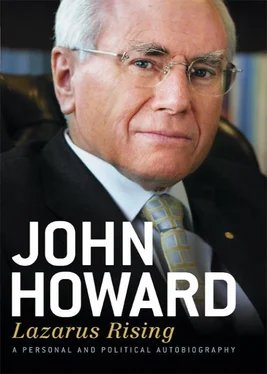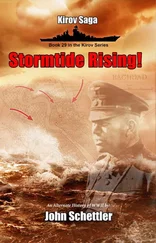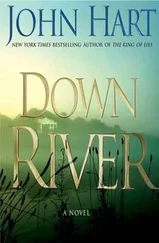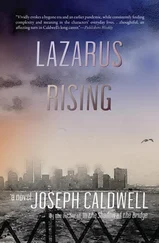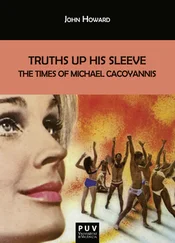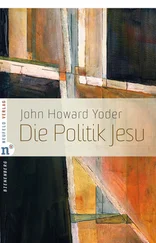To my parents, who gave me the values and determination I took into public life
To John Carrick, my mentor, from whom I learned more about politics than anyone else
To my family, whose love and support sustained me through my years in parliament and government
Cover
PART 1 EARLY LIFE AND THE FRASER GOVERNMENT PART 1 EARLY LIFE AND THE FRASER GOVERNMENT
1 THE SOURCE
2 INDULGING THE TASTE
3 DRUMMOYNE
4 REGROUPING AND REBUILDING
5 ‘THE ONLY GAME IN TOWN’
6 A SAFE SEAT
7 THE HONOURABLE MEMBER FOR BENNELONG
8 FRASER TAKES OVER
9 THE DISMISSAL
10 A MINISTER
11 ‘MAY I SPEAK TO THE TREASURER?’
12 ‘YOUR INDIRECT TAX IS DEAD, COBBER’
13 FOOLED BY FLINDERS
Picture Section 1
PART 2 THE OPPOSITION YEARS
14 PEACOCK VS HOWARD
15 LEADER BY ACCIDENT
16 JOH FOR PM
17 THE COUP
18 THE ‘UNLOSABLE’ ELECTION
19 LAZARUS HAS HIS TRIPLE BYPASS
20 THE ROAD TO THE LODGE
Picture Section 2
PART 3 THE HOWARD GOVERNMENT
21 SHAPING THE GOVERNMENT
22 SEIZING THE DAY ON GUNS
23 PAULINE HANSON
24 THE FOUNDATION BUDGET
25 THE CHALLENGE OF INDIGENOUS POLICY
26 ON THE WATERFRONT
27 THE HOLY GRAIL OF TAX REFORM
28 WE STILL WANT YOU, MA’AM — THE REPUBLICAN DEBATE
29 THE LIBERATION OF EAST TIMOR
30 AN EXCESS OF EXCISE — THE PRE- TAMPA RECOVERY
31 WASHINGTON, 11 SEPTEMBER 2001
32 MV TAMPA
33 THE BALI ATTACK
34 IRAQ
35 GEORGE BUSH
36 BLUE COLLARS AND GREEN SLEEVES — LATHAM’S IMPLOSION
37 THE HUMAN DIVIDEND
38 SHAKESPEARE IN MANDARIN
39 ASIA FIRST, NOT ASIA ONLY
40 A WONDER DOWN UNDER
41 OUR WARM, DRY LAND
42 BILLY GETS A JOB, BUT WHO CARES?
43 SHOPPING CENTRES, BOARDROOMS AND DRESSING ROOMS
44 THE LEADERSHIP
45 THE TIDE RUNS OUT
46 REFLECTIONS
APPENDIX
NOTES
AUTHOR’S NOTE
INDEX
CREDITS
Copyright
About the Publisher
PART 1 EARLY LIFE AND THE FRASER GOVERNMENT
Towards the bottom of William Street, Earlwood, in the 1940s there was a paddock; it was next to a baby health centre. Later, the paddock disappeared when a library and new baby health centre were built. Near the end of 1949 that paddock was a hive of activity as the nerve centre of the local efforts to re-elect Daniel Mulcahy as Labor member for the division of Lang, in the federal parliament. The Howard household, at 25 William Street, lay diagonally opposite this paddock. Mulcahy was the first member of parliament I had consciously set eyes on. He wore a three-piece suit and smoked a pipe.
The Labor campaign team for Lang had put up a temporary shed on the paddock. Plenty of people, mainly men, came and went, picking up leaflets and generally looking very busy. This was my first contact with local grassroots election campaigning. Although the suburb of Earlwood then produced a Liberal vote of about 45 to 50 per cent, the Labor Party never had much trouble in holding the seat; the other suburbs in Lang, like Campsie, Canterbury and Belmore, were very solidly Labor.
I knew nothing about Mulcahy other than what my mother told me: he lived in Darling Point, in Sydney’s wealthy eastern suburbs, owned a number of hotels and by reputation was one of the most affluent MPs in the parliament.
I once saw him speaking outside the Earlwood Hotel. Later I heard Liberal supporters say that he only turned up at election time, shouted the bar and on the strength of that got re-elected. I am sure that this was quite unfair, and that he was probably a conscientious member, but that was the typecasting of political opponents.
That Labor shed really interested me. I would stand on the edge of the paddock looking at it and the campaign workers milling around. They gave the impression of doing something important. Observing it began a lifelong fascination of mine with politics. This book is my story of that fascination, my career in Australian and world politics and a commentary on the changes in Australian society and national life during the 60 years which have passed since I first gazed at that shed.
Any narrative of politics must include the shaping and implementation of policies which influence the direction of a nation and as well the constant interaction of personalities, particularly within political parties. The regular swirl of ideas, ambition and egos inevitably produces rivalries and, in some instances, alienation.
In this book I explore the public policy issues I grappled with as a member of parliament for more than 33 years. In addition, I endeavour to deal objectively with the key relationships of my years in politics, the difficulties in them as well as the generosity, loyalty and decency which they involved.
Mum and Dad were born at the tail end of the 19th century, my father in 1896 and my mother in 1899. As such, their lives were forever shaped by the three historic tragedies of the 20th century — World War I, the Great Depression and World War II. To this day I marvel at the stoicism of a generation which coped with the trauma, deprivation and sadness of those epic events, but still kept intact the cohesive and optimistic society which later generations were to inherit.
The American journalist Tom Brokaw called the generation which came of age during the Great Depression and World War II the Greatest Generation, and that phrase has resonated powerfully amongst Americans. That same generation of Australians also is owed an immense debt of gratitude by mine and later generations for what they endured for Australia. In Australia, however, the description of the Greatest Generation would have to belong to the generation before the one of which Brokaw wrote. That was my parents’ generation, because it directly experienced the impact of World War I.
Although America joined the Great War in 1917, its effect on that nation was nothing like it was for Australia. For our nation, no tragedy has matched that of World War I. The loss of life was on a scale that today’s generation would find impossible to come to terms with. Many small country towns never recovered from the staggering losses of their young manhood. To lose more than 60,000 dead, with tens of thousands more blinded and crippled, from a male population of no more than 2.5 million, was a terrible depletion of our precious human resources. Les Carlyon, in his book The Great War, wrote, ‘There were so many of them, and we never really, saw them.’ 1
Both of my parents left school at the age of 14, as did most children of that era. It was their children’s generation that completed secondary education in large numbers, and often went on to university.
My father, Lyall Falconer Howard, was born at Cowper, near Maclean on the Clarence River in northern New South Wales, the eldest of nine children. He attended Maclean Public School. His parents had very little money, and shortly after leaving school he secured an apprenticeship as a fitter and turner at the Harwood Island Mill, on the Clarence River, owned by Colonial Sugar Refinery (CSR). He enlisted in the Australian Imperial Force (AIF) on 27 January 1916 at the age of 19. His first attempt to join up had been unsuccessful because he did not meet the height requirements. He became a signaller with C Company of the 3rd Pioneer Battalion of the 3rd Division.
After several months training in both Brisbane and Melbourne his unit sailed for England on the Wandilla on 6 June 1916. His youngest sibling, Ian, was barely a year old when my father left on the troopship for Europe. The 3rd Division was commanded by Sir John Monash, certainly the best field commander Australia has ever produced. Many rank him and Sir Arthur Currie of Canada as the most talented commanders of World War I. Monash insisted that his men undergo extensive training in England before being sent to the front.
Читать дальше
